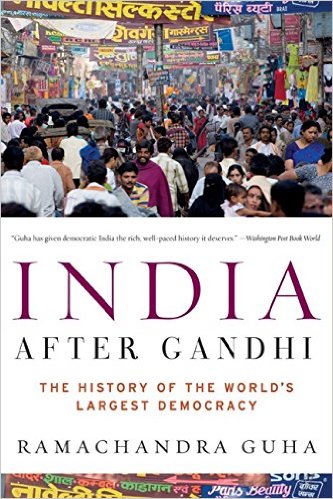November 8th, 2016, the day when the world was jolted as two of the democracies of the world, one oldest and the other largest, steered in a new direction. The oldest went on to choose a president that none of us expected. The largest too chose a policy that no one could have thought of.
Prime Minister of India Narendra Modi in an address to the nation declared currency notes of INR 500 and 1000 worthless and from midnight these would just become another piece of paper. The move led to a joke floating over social media which goes like, ‘the media prepared for Trump, while Modi came out of syllabus’. Pretty much apt, no? Who in the world could have guessed or even expected that the government would or could bring 86% of currency to mere bits of coloured paper.
After the news went viral people went crazy, everyone wanted to deposit their cash into their accounts. No one was ready to hear or think rationally to what the nation’s leader had to say.
The succeeding days saw serpentine queues outside every bank, people waiting to deposit money into their account, or waiting in hope to get hands on new currency notes that were supposed to replace the old one.
The motive, as per government, behind this move was to fulfill three pests which continued to plague our nation:
- Curb black money/illicit money/ unaccounted money.
- Remove counterfeit currency from the economy.
- The last, cripple funding of cross border terrorism.
Let us analyze the three and se if the move actually helped or it proved to be a placebo.
First, curbing black money. Unaccounted money is one of the biggest deterrent to our economy. Although as per some leading economists black money is not in the form of cash but in the form of foreign reserves, gold, silver, and real estate.Only 5-6% is stored as cash. As per CBI, Indians hold approximately $500 billion of illicit money, doing simple math you can estimate that even if the cash form is only 5% it still has a value of $25 billion, a amount which if recovered could be put to nation’s progress.
Second, counterfeit currency is another problem which effects Indian economy to a great extent. By removing old notes and taking anti counterfeit measures in printing new notes, the government has put a hold to these activities for next few years.
Third, putting a hold on state funded terrorism. Terrorism as we all know is a major issue in our country, thanks to insurgents groups within and outside the nation,who just know the language of destruction and bloodshed. But wo rarely realise that these insurgents too need money to survive. Where do they get this money? Obviously they dont have an account to withdraw from. They are funded by this illicit cash floating around. Demonetization has hit hard this funding and the effect of which is visible in Kashmir Valley, which was burning, when our army gunned down a terrorist, in the name of freedom. But what happened, where did all those brave freedom fighters and stone pelters go after 8th of November? Scrapping of currency should have stopped them, should it?
Having said that what I would like to bring to light here is that although the general public has and is facing hardship everyday since 8th, partly due to high dependence on cash and partly due to inefficient implementation of the policies, they are happy to bear the short term pain for a long term gain. A gain which would help India overcome the malaise of corruption and black market.
The faith of people in the government shows in the fact that the ruling party was able to sweep 90% of seats in the Chandigarh municipal elections.
As of today, I see the move as a one with good intention but lacking efficient implementation and planning. The coming days or being more specific the coming fiscal year would rise the curtain and would let the citizens know it was a master stroke or a political suicide.


 Steve Jobs, as we all know, the person who changed the way people interacted with tech. The Apple co-founder had been, until his demise, revolutionizing the industry, be it PCs, MP3 players, or mobiles.
Steve Jobs, as we all know, the person who changed the way people interacted with tech. The Apple co-founder had been, until his demise, revolutionizing the industry, be it PCs, MP3 players, or mobiles.